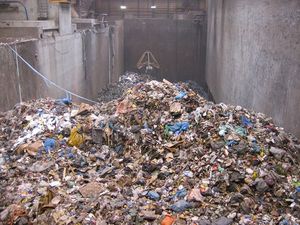Consumerism
Description
Consumerism is an approach to life that is predominantly based on the acquisition and display of material goods. Although consumerism is enacted individually by people who are seemingly driven internally to buy consumer goods (never staples), the drive can probably be traced to a media-induced need production which convincingly defines what the “good life” and how it can be purchased. It also sets up the standards of status through which people can be judged and these are in turn taken up by peer groups who help maintain the system.
How it Works
In order for consumerism to work in any society people need to have disposable income (money left over once basic needs like food, water, and shelter are met). It helps if the members of this society believe that their consumerism is good for the society at large, for example: after World War 2 American citizens were encouraged to buy new products to help the economy recover after the war and the great depression (1).
A large middle class, with disposable income, and not much to worry about, is also very beneficial to creating a culture of consumerism. Consumerism also thrives when people spend a large portion of their time doing things other than work. The 40 hour work week, having several full days off a week, and having the ability to take extra time off from work, all help consumerism to thrive.

